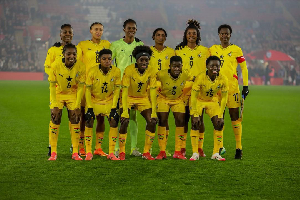GENEVA, Switzerland (AP) -- The number of worldwide polio cases last year rose by almost one-third after a vaccine boycott in Nigeria spawned a resurgence of the disease across Africa, the World Health Organization said Wednesday.
The number of cases worldwide in 2004 reached 1,185, compared with 784 in 2003, the United Nations health agency said.
Most of the cases were in Africa -- largely in Nigeria, the continent's most populous nation. Hardline Islamic clerics in Nigeria's northern Kano state led the immunization boycott, claiming the polio vaccine was part of a U.S.-led plot to render Nigeria's Muslims infertile or infect them with AIDS.
The boycott triggered an outbreak across the continent, infecting children in formerly polio-free countries and hurting WHO-led attempts to eradicate the crippling disease by December 31, 2005.
"It's slowed the efforts for sure," said Sona Bari, a spokeswoman for WHO's Polio Eradication Initiative. "It's going to take months to deal with the effects."
Amid the vaccine boycott, the Nigerian-rooted virus spread to neighbor countries including Benin, Chad and Cameroon. It also was exported farther afield, to Botswana, Burkina Faso, Central African Republic, Ghana, Guinea, Mali, Togo and even Saudi Arabia.
Vaccination programs restarted in Nigeria in July after local officials ended their 11-month boycott. WHO also boosted immunization across Africa.
Nigeria, which had 763 cases last year versus 355 the year before, is one of the six countries where polio is still considered endemic. India had 129 cases, Pakistan 46, Niger 25, Afghanistan four and Egypt one.
Polio is a waterborne disease that usually infects young children, attacking the nervous system and causing paralysis, muscular atrophy, deformation and sometimes death.
When WHO launched its anti-polio campaign in 1988, there were more than 350,000 known cases worldwide.
Polio eradication efforts now face a $100 million shortfall, largely because of the costs of responding to the Nigeria-fueled outbreak, Bari said.
However, WHO does not fear its polio campaign will lose funding because of the massive global focus on helping Asian countries hit by December's tsunami disaster.
"Our donors are on board for the long haul," Bari said.
Efforts to defeat polio also have been hampered by civil war in Ivory Coast and Sudan, both hit by the Nigerian virus, WHO said. Experts are particularly worried the virus will spread from Sudan to Ethiopia and Congo -- which also is in the grip of conflict.
Health News of Thursday, 13 January 2005
Source: --












